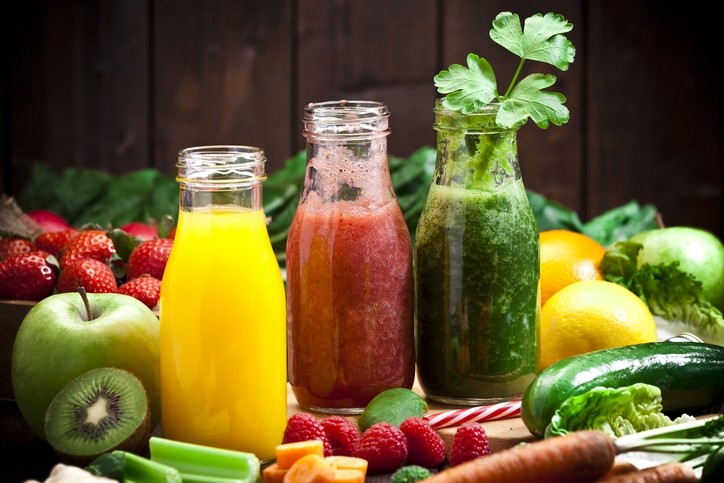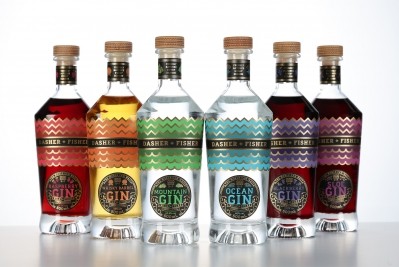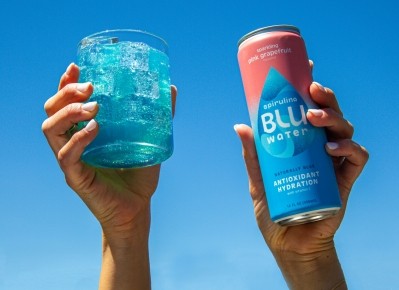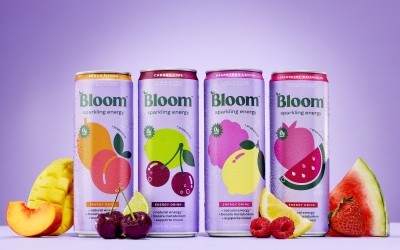Health and wellness beverage trends

Decades ago, the beverage category might have been known for overly sweet sugary soda - but brands and consumers alike have driven the category into a much better place.
Consumers are much more clued into health and wellness - and expect brands to be so as well.
And they're much more discerning about the beverages they drink: asking key questions about what's healthy - and what's not.
Functional and fortified beverages
Functional beverages offer specific benefits beyond hydration.
Desire for energy is huge: mass market propositions such as sports and energy drinks continue to gather in strength.
Meanwhile, everyday pick-me-ups are also popular (ranging from coffee to other caffeinated drinks or those using natural botanicals for an uplift).
At the other end of the spectrum are an increasing number of drinks focused around relaxation, decreasing strength and anxiety, and promoting mental health: drawing on ingredients ranging from ashwagandha and lemon balm to CBD.
There’s also fast-growing categories such as gut health (which spans from probiotic and prebiotic sodas to fermented beverages such as kombucha and kefir) and an intriguing emerging category of drinks that try to replicate the buzz of alcohol (such as cannabis).
Research from Synergy Flavors identifies 9 key need-states that consumers are seeking to address with functional beverage products: energy, gut health, immunity, muscle building, brain health, skin health, hydration, female nutrition, and healthy aging.
Gut health was the most sought-after functional benefit in the research, with 39% of respondents expressing an interest in products that promote it.
Fortified beverages, meanwhile, offer a boost of essential vitamins or minerals and some of these have become a staple of our diets (such as orange juice fortified with Vitamin D).
Immunity - a claim that thrived through the pandemic with drinks packed with vitamins and minerals - is another longstanding functional benefit that resonates with consumers.
Low and no sugar
Sugar is public enemy number one, and nowhere is this more evident than in the beverage category. Beverages manufacturers have spent decades investing in sugar reduction and driving down sugar content.
Reformulation is the most obvious place to start: beverages can reduce sugar by turning to non-calorific sweeteners with a host of options at their disposal (in many markets, soda taxes from governments have spurred these efforts on).
Big players such as Coca-Cola and PepsiCo have seen sales of diet and zero sugar drinks boom: in fact, they now commonly launch a zero sugar version alongside a new drink as a standard and equally valued proposition.
Some consumers remain wary about artificial sweeteners, while others welcome the option of a sugar-free drink. And innovation in natural sweeteners continues to gather pace.
The big question is: do beverage profiles really need to be super sweet?
Fermented profiles such as kombucha suggest not.
Natural and organic
While the organic category might face pressures from cost-of-living challenges, the fundamentals of the category remain: consumers are keen to reduced their exposure to chemicals and other unknown entities across the supply chain.
Natural products continue to resonate with consumers: and that spans to natural flavors and sweeteners as well. As the debate around ultra-processed foods continues to grow, that also includes beverages, where consumers want to feel their product is as natural and has been through the minimal of processing as well. Claims like ‘made with real fruit juice’ continue to resonate with consumers who want to be assured that what they’re drinking comes from natural sources.
Consumers are on the look out for various attributes whether they completely understand what they mean or not: showing a desire for ‘natural’ and ‘organic’ and ‘real’ and ‘unprocessed’.
The one thing that ties them together: they want goods free from any ‘nasties’.
Plant-based
There’s a growing shift towards plant-based drinks such as oat milk, soy milk and nut milk. That’s particularly evident in the coffee category, where milk-based coffee and creamers are increasingly seeing competition from plant-based versions (plant-based creamers grew 13% in dollar sales and 9% in unit sales in 2023, according to Nielsen data).
Many consumers switch to plant-based for its health halo (while the nutritional value of milk alternatives can vary, they often have less fat than dairy milk) as well as ethical reasons around concerns about the treatment of cows, or the impact of dairy on the environment.
Unbeknownst to many consumers, a number of beverage categories do use animal products in their processes as standard (isinglass in beer for example, or fining agents in wine), leading to the emergence of vegan beer and vegan wines.
Hydration
Staying hydrated is biologically essential and a fundamental of why many people reach for a beverage in the first place.
But the hydration trend has gone well beyond that simple ‘thirst – drink’ reflex.
Brands and consumers are increasingly clued into the idea that other beverages can be more hydrating than pure water – and offer a lot more besides. Adding things like carbs and electrolytes can affect osmolality (a measure of the amount of dissolved solids in the beverage and how this effects the efficiency of absorption).
That’s seen the influx of drinks boasting added electrolytes or salts for enhanced hydration.
Wellness shots
By no means a new trend, wellness shots offer something of a bridge between beverages and supplements: taking the convenience and measured dosage of supplements but putting them into a more palatable, enjoyable and less clinical beverage experience.
Wellness shots span everything from energy to gut health to collagen beauty shots.
Personalized nutrition
Customization and personalization is a key trend across beverages: with consumers wanting to personalize their drinks choices from flavors to carbonation (think SodaStream’s at-home personalized beverage system).
Personalized nutrition, meanwhile, represents the next frontier in health and wellness. Individuals can track their own stats like never before through smart watches and other tech.
That can then be linked up to nutrition and hydration. Gatorade is one of the pioneers in this area: exploring personalized nutrition tech with innovations such as the Gx Sweat Patch (designed to let athletes and nutritionists personalize fluid intake around individual sweat levels) and ‘smart caps’ to track and release formulas according to individual needs.












